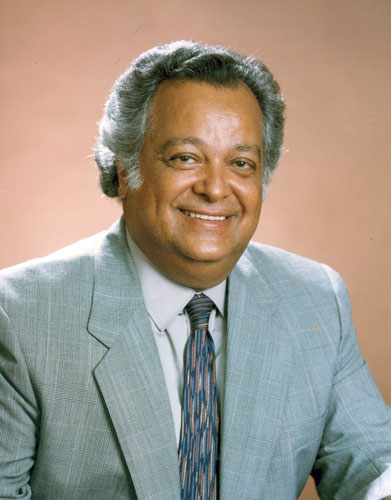Archive for March 22nd, 2011

UCCI speakers reveal diversity of views
 (CNS): The UCCI conference heard some interesting and diverse positions on the fundamental themes of the regional conference, as academics, politicians and business people took to the podiums last week. Guyanesebarrister Sir Shridath Ramphal, former secretary-general of the Commonwealth Secretariat, gave the key note speech on Thursday and emphasised the importance of an educated Caribbean. He warned people about being mere spectators of advancing technology and becoming “dependant illiterates” on someone else’s technology “opting for another kind of bondage” and facing a knowledge gap bigger than the income gap traditionally used to measure development.
(CNS): The UCCI conference heard some interesting and diverse positions on the fundamental themes of the regional conference, as academics, politicians and business people took to the podiums last week. Guyanesebarrister Sir Shridath Ramphal, former secretary-general of the Commonwealth Secretariat, gave the key note speech on Thursday and emphasised the importance of an educated Caribbean. He warned people about being mere spectators of advancing technology and becoming “dependant illiterates” on someone else’s technology “opting for another kind of bondage” and facing a knowledge gap bigger than the income gap traditionally used to measure development.
Against the conference theme of leadership, governance and empowerment, Ramphal spoke about the failure of regional leadership. He said the regional co-operation that emerged after the federalist dreams for the region collapsed in the 1960s was a “triumph of practicality over inclination as mutual interests override natural instinct for contrariness and fragmentation.” He pointed to Ron Sanders’ position that the failure of the region to properly integrate was down to the failure of leadership.
Alongside the leadership deficitin Caribbean he pointed to the failure of civil society to become empowered. He said an empowered civil society does not exist in the Caribbean. He pointed to a lack of activism, consumer associations, trade union movements and others. The former Commonwealth leader also pointed out how the people of the region are not represented properly when the world talks about key issues such as climate change. This was crucial as he noted that this affects the region directly. While professionals from the Caribbean may be, the people are not, he said.
Ramphal warned that the region was buying into the agendas of the NGOs from the north and not considering the agenda of the Caribbean.
When it came to good governance, Ramphal said that one attribute of good government was “the freedom to criticise government.” While the Caribbean on the whole is democratic, he said, democracy was more than form and structure of governance but the “substance and quality as well” had to pass muster. He said there were too many instances in the region of “endangered government values,” adding that governments occupy too much of the governance landscape with the checks and balances of larger countries often absent.
“The yearning for betterment reaches still into every aspect of life, civil and political, economic, social and cultural. It looks, for example, towards more civil societies, more open government, participation in governance beyond the ballot box, and towards a better chance for social and economic achievement for the average West Indian,” he added.
Ramphal also noted that there were very special issues affecting the non-independent Caribbean and said the legacy of colonialism had reinforced separateness. He pointed out that rest of Caribbean had learned not to look down on countries not yet independent, however, as independence had not solved all their problems.
On Friday, following comments from the minister of education, the guest speaker was Dr Warren Smith, the president-elect of the Caribbean Development Bank, who spoke about the need for good leaders to understand the anxieties of the people.
“The focus of leadership must be placed on issues that are the most important to those who are being led,” he said. Smith argued that the major anxiety of Caribbean people could be captured under the broad rubrique of “insecurity” what he described as a generalised sense of losing control of their destiny in a number of critical areas of social and economic life.
Economic uncertainty, climate, crime and violence were the principal anxieties he stated as a result of major disruptions in those areas, which he said should be the principal preoccupation of Caribbean leaders.
“Urgent public policy action for the Caribbean is the development of a strategy to shift regional economic activity onto a new growth trajectory and to provide the resources needed for a dramatic reduction in the unacceptably high levels of poverty,” he said adding that the Asian economies and Cayman had demonstrated that drastic and permanent reductions in poverty came via rapid and sustained economic growth.
“To create conditions for opening up new economic vistas for our people, we need to systematically remove obstacles to the creation of new industries in our small economies, whilst reengineering existing/traditional industries to make them internationally competitive,” Smith said.
With crime and violence now endemic in many Caribbean countries he said it was a source of considerable insecurity and one of the most difficult challenges to overcome because of the power and wealth of the international crime syndicates.
He also pointed to organised crime’s complex relationship with domestic politics in many Caribbean jurisdictions. “Its resolution, therefore, has a coercive as well as a social interventionist dimension,” he said.
As the presidentof a bank, it came as no surprise that Smith said leaders would quickly recognise that good intentions without access to resources will eventually lead to alienation and frustration. He said Caribbean leaders had to make choices and take risks. Quoting John F. Kennedy he said “There are risks and costs to a programme of action; but they are far less than the long-range risks of comfortable inaction.”
During the two day conference Governor Duncan Taylor, Deputy Governor Donovan Ebanks, Premier McKeeva Bush, Minister of Education Rolston Anglin, Chief Magistrate Margaret Ramsay-Hale, the former opposition leader Kurt Tibbetts and many other politicians, along with business leaders, such as Tortuga Rum Company founder Robert Hamaty, as well as representatives from civil society, such as Rev. Nicholas Sykes and Dr Frank McField, all took to the podium to offer their views on leadership, governance and empowerment.
Lawyers plan 6 storey tower
(CNS): Offshore legal firm Appleby has announced plans to expand its Cayman Islands office with the addition of a new 6-storey tower at its Fort Street location. The firm said the new Appleby Tower, to be completed in the summer of 2012, has been “architecturally designed to blend into the existing colonial style buildings, Clifton House and Artemis House,” but said it features a modern glass façade. The building will be constructed with various green initiatives, the lawyers said, such as energy-efficient lighting and air conditioning systems, as well as water conservation equipment. On Wednesday 16 March a ceremony was held at the Appleby offices to break ground for the development, which will bring the firm’s total meeting and office space to 80,000 square feet.
Floors one to five will be occupied with a state-of-the-art training room, workspace for several practice groups and business support services, the firm revealed. Meanwhile, the sixth floor will be home to new conference room facilities and will boast views over the harbour front and George Town. The rooftop terrace will be fitted with an entertainment deck, providing panoramic views of the George Town harbour, Heroes’ Square and the new park.
“Despite the recession, Appleby has continued to grow and has maintained its position as the world’s largest offshore law firm,” Appleby Managing Partner of the Cayman office, Huw Moses, said at the ceremony. “Here in the Cayman Islands, Appleby has also experienced positive growth and the expansion of our footprint in George Town will enable us to continue to provide premier offshore legal, fiduciary and administration services to our clients within the Cayman Islands, across all our jurisdictions and beyond.”
Bodden Town grows 79%
(CNS): The population of Grand Cayman’s historic capital has grown by 79.4% in the last decade, early results from the 2010 census have revealed. Although the district of Bodden Town makes up only 19% of the overall Cayman Islands’ population, its increase since the last census of 4,577 people makes it the fastest growing district in the country. In its preliminary report on the results of the 2010 census the Economics and Statistics Office revealed that the overall population stands at 54,878 residents living in 22,646 households. Although the full results of the census are not expected until October, this first report gives the country’s headcount and population breakdown in the districts.
Of those 54,878residents, 481 are living in institutions such as prisons, dorms or retirement homes. George Town remains the country’s most populated district, accounting for the majority of the entire population with 27,704 people. 11,269 people now live in West Bay, followed by 10,341 people in Bodden Town. There are 1,437 people in North Side, 1,369 in East End and the Sister Islands are home to 2,277 residents.
The report also shows that there are still slightly more women in the country (50.6% of the overall population) than men, and this is the case in all districts except George Town, where 50.8% of the population is male. In Bodden Town, the proportion of females was the highest compared to any other district at 53% of the population — a total of 5477 women live in the district.
Compared to the 1999 census, the country’s overall population increased by 15,377 persons or 39.4 percent, and grew at an average annual rate of three (3) per cent.
“If the population were to continue to grow at this rate, it would double its size by the year 2033,” the ESO report stated. In Bodden Town during the inter-censal period, the average annual rate was 5.3%. leading to a continued increase in the district’s share of the overall population over the past 30 years, from 9.6% in the 1979 census to 19.0% in the 2010 census.
“All the other districts have experienced a gradual decline in their share of the population over the past 30 years, except George Town, which had experienced a gradual increase up to 1999. Although George Town’s share decreased during the 1999/2010 period, it continues to maintain the biggest share of the population,” the report revealed.
The data was collected during the Cayman Islands 2010 Population and Housing Census, which was conducted over the scheduled six-week period starting Census Day, 10 October 2010. Enumerators visited approximately 30,000 dwelling units during that period and were allowed an additional two weeks to revisit households where no contact was made. Some of the dwelling units were vacant units, vacation homes and short-term rental houses.
This preliminary report is based on the cover page of all census questionnaires, where a count of household members was recorded. In summary, there were 22,646 households, whose members were counted during 2010 census. The final census report will be prepared after all information in the questionnaires is edited, verified for consistency, coded, scanned and processed for tabulation. The editing and verification phase is currently on-going. It is expected that the final report will be submitted to Cabinet by October 2011.
See the preliminary report below.

LIME faces opposition to BTC deal in the Bahamas
 (CNS): Protestors in the Bahamas were marching outside the parliament in Nassau on Monday, over the government’s controversial decision to sell off a majority share of the country’s telephone company to LIME. Fifty-one percent of Bahamas Telecommunications Company will be handed over to Cable the firm under a deal signed by Prime Minister Hubert Ingraham which is being debated in parliament this week according to the local press. Opponents of the sale are concerned about the expected redundancies and a local union is trying to stop the sale through the courts. The President of the National Congress of Trade Unions of the Bahamas Jennifer Isaacs Dotson said a number of affiliated unions under the NCTUB were supporting the action.
(CNS): Protestors in the Bahamas were marching outside the parliament in Nassau on Monday, over the government’s controversial decision to sell off a majority share of the country’s telephone company to LIME. Fifty-one percent of Bahamas Telecommunications Company will be handed over to Cable the firm under a deal signed by Prime Minister Hubert Ingraham which is being debated in parliament this week according to the local press. Opponents of the sale are concerned about the expected redundancies and a local union is trying to stop the sale through the courts. The President of the National Congress of Trade Unions of the Bahamas Jennifer Isaacs Dotson said a number of affiliated unions under the NCTUB were supporting the action.
“Whatever we do weneed to combine our efforts. There is no sense in us separating our efforts to try to get the government to change [its] mind in selling BTC, so we’re all here together and working together in collaboration tostill say to the government, stop, review and cancel this decision to sell,” he told the Nassau Guardian.
Meanwhile, in Jamaica LIME wants the Fair Trading Commission to assess the deal between its rival Digicel and America Movil. Digicel announced earlier this month that it had signed an agreement with America Movil to acquire Claro business in Jamaica, and sell businesses in El Salvador and Honduras.
The financial terms of the transactions have not been disclosed.
LIME, said the merger is important to the telecoms sector and should be carefully assessed by the government, the Office of Utilities regulation and the Fair Trading Commission. The opposition People’s National Party has raised concern over possible consequences for competition and prices for the consumer when the number of telecoms providers reverts to two.

Religion becoming extinct in nine countries
 (BBC): A study using census data from nine countries shows that religion there is set for extinction, say researchers. The study found a steady rise in those claiming no religious affiliation. The team’s mathematical model attempts to account for the interplay between the number of religious respondents and the social motives behind being one. The result, reported at the American Physical Society meeting in Dallas, US, indicates that religion will all but dieout in those countries. The team took census data stretching back as far as a century where the census queried religious affiliation: Australia, Austria, Canada, the Czech Republic, Finland, Ireland, the Netherlands, New Zealand and Switzerland.
(BBC): A study using census data from nine countries shows that religion there is set for extinction, say researchers. The study found a steady rise in those claiming no religious affiliation. The team’s mathematical model attempts to account for the interplay between the number of religious respondents and the social motives behind being one. The result, reported at the American Physical Society meeting in Dallas, US, indicates that religion will all but dieout in those countries. The team took census data stretching back as far as a century where the census queried religious affiliation: Australia, Austria, Canada, the Czech Republic, Finland, Ireland, the Netherlands, New Zealand and Switzerland.
"In a large number of modern secular democracies, there’s been a trend that folk are identifying themselves as non-affiliated with religion; in the Netherlands the number was 40%, and the highest we saw was in the Czech Republic, where the number was 60%," said Dr Richard Wiener of the Research Corporation for Science Advancement, and the University of Arizona.

Mac heads for Venice
 (CNS): The premier is beginning another overseas trip this week, which will include a trip to the famous Italian canal city of Venice. According to Mckeeva Bush’s press office, he will be visiting the historic city in order to look at a dam built by GLF, the developers who are currently poised to construct the cruise berthing piers in George Town. The premier will begin his travels, however, in Washington to meet US treasury representatives, before heading to New York for tourism strategy related meetings, then to Venice before heading to Dubai to promote the development of the planned technical economic zone.
(CNS): The premier is beginning another overseas trip this week, which will include a trip to the famous Italian canal city of Venice. According to Mckeeva Bush’s press office, he will be visiting the historic city in order to look at a dam built by GLF, the developers who are currently poised to construct the cruise berthing piers in George Town. The premier will begin his travels, however, in Washington to meet US treasury representatives, before heading to New York for tourism strategy related meetings, then to Venice before heading to Dubai to promote the development of the planned technical economic zone.
During the premier’s travels to Italy, aside from reviewing the dam built by GLF to prevent the flooding of Venice, demonstrating the firm’s engineering capabilities, he will also meet with Italian tourism and airline officials to discuss tourism matters, including the possibility of Alitalia code sharing with Cayman Airways.
On Bush’s first port of call on Wednesday in Washington DC he is scheduled for talks with the US Treasury, accompanied by Attorney General Samuel Bulgin, CIMA Chairman George McCarthy, Deputy Chief Officer, Financial Services Samuel Rose and accountant Dan Scott. Next on the agenda will be New York, where, accompanied by MLA Cline Glidden, the premier will attend the Department of Tourism’s Global Marketing Strategies meeting.
After Venice, Bush will head to the Arabian Gulf and Dubai, where he joins the developers of Cayman Enterprise City to promote the special economic zone that is proposed by Hon Development Company. “The premier will participate in a news conference and meet with potential investors, including members of Dubai’s royal family, to discuss the possibility of setting up business in the Cayman Islands,” the press office stated.
While the premier is away, Deputy Premier Juliana O’Connor-Connolly will be acting as premier.

London stays top as Cayman falls in GFC Index
 (CNS): London has topped the list of financial centres, again, in the Global Financial Centres Index, a ranking of the top 75 cities in which to do business. The ninth edition of the twice-yearly Index, published by think tank, Z/Yen placed London ahead of New York, and Hong Kong which came in second and third in all of the five key areas which include people, business, environment, market access, infrastructure and general competitiveness. The Cayman Islands continued its decline in the index having started in the first edition ranked 22nd the jurisdiction fell a further four places from the eighth edition to number 38 in the latest rankings
(CNS): London has topped the list of financial centres, again, in the Global Financial Centres Index, a ranking of the top 75 cities in which to do business. The ninth edition of the twice-yearly Index, published by think tank, Z/Yen placed London ahead of New York, and Hong Kong which came in second and third in all of the five key areas which include people, business, environment, market access, infrastructure and general competitiveness. The Cayman Islands continued its decline in the index having started in the first edition ranked 22nd the jurisdiction fell a further four places from the eighth edition to number 38 in the latest rankings
However, all offshore centres with the exception of the British Virgin Islands fell further than the
average, continuing a trend since the financial crises began. Jersey and Guernsey remain the leading offshore centres. “The offshore centres continue to come under scrutiny during the financial crisis,” the report states. “Many offshore centres are still regarded as ‘tax havens’ and there has been significant pressure applied to these centres by many national regulators as well as international bodies such as the OECD.”
The report said that confidence amongst financial services professionals has fallen since GFCI 8, as
shown by lower overall ratings – 47 centres have lower ratings in GFCI 9 with only 25 centres rated higher. Asia continues to exhibit enhanced competitiveness with eight centres in the top twenty against six North American centres and five European ones. In GFCI 1 there were just three Asian centres in
the top twenty.
Seoul was the largest riser moving into 16th place, up 25 points in the ratings and when questioned about which financial centres are likely to become more significant in the next few years, the top five centres mentioned are allAsian – Shanghai, Singapore, Seoul, Hong Kong and Beijing. Asian cities also fill the top six places when respondents indicate where their organisations are most likely to open new offices.
GFCI uses responses to an ongoing online questionnaire completed by international financial services
professionals. Respondents are asked to rate those centres with which they are familiar and to answer a number of questions relating to their perceptions of competitiveness. Overall, 33,751 financial centre assessments from1,970 financial services professionals were used to compute GFCI 9,with older assessments discounted according to age, the report reveals.

Voting opens on films made by budding directors
 (CNS): The public vote is now open on the Cayman National Cultural Foundation’s Young Image Maker competition. The winners of the best film will get the chance to attend the New York Film Acccademy’s Summer Movie Camp. All of the films are now available for viewing on youtube.com/caymanfilm and voting is open until 8 April. The films that make the finals will be shown at the Harquail Theatre on 16 April when the winner will be announced. After watching all the videos viewers can send email their vote to cayfest@candw.ky
(CNS): The public vote is now open on the Cayman National Cultural Foundation’s Young Image Maker competition. The winners of the best film will get the chance to attend the New York Film Acccademy’s Summer Movie Camp. All of the films are now available for viewing on youtube.com/caymanfilm and voting is open until 8 April. The films that make the finals will be shown at the Harquail Theatre on 16 April when the winner will be announced. After watching all the videos viewers can send email their vote to cayfest@candw.ky
See flyer below for more details

Radio station plans no texting and driving campaign
 (CNS): A local media company says that it will be launching a campaign next month against the use of cell phones while driving. Paramount Media said that while most safe driving campaigns in the past have concentrated on drinking and driving as the number one evil, studies now show that the use of phones while driving is killing more than 6,000 people a year in the United States and injuring another 500,000. “Using a cell phone while driving delays a driver’s reaction as much as having a blood alcohol concentration at the legal limit of .08 percent,” the media firm said in a release. Paramount says it is now looking for corporate and community support for the campaign and is asking the public to join forces to put an end to texting and driving.
(CNS): A local media company says that it will be launching a campaign next month against the use of cell phones while driving. Paramount Media said that while most safe driving campaigns in the past have concentrated on drinking and driving as the number one evil, studies now show that the use of phones while driving is killing more than 6,000 people a year in the United States and injuring another 500,000. “Using a cell phone while driving delays a driver’s reaction as much as having a blood alcohol concentration at the legal limit of .08 percent,” the media firm said in a release. Paramount says it is now looking for corporate and community support for the campaign and is asking the public to join forces to put an end to texting and driving.
As well as school presentations, Paramount said teams will be hitting the streets to educate the public and encourage them to sign the campaign pledge.
The campaign comes at a time when there is increasing calls in the community for an official band on people using phones while driving. Many countries have introduced bans on hand held phones but allow use of phones held in ‘hands free’ devices.
“We here at Paramount Media along with corporate sponsors such as CUC, Deloitte, Aetna,
Paramount Group, Butterfield, High Impact Digital Billboards, and Sign Solutions are putting
together a safe driving campaign to help put a stop to cell phone use while driving a vehicle and
distracted driving that is endangering the lives of drivers and pedestrians alike. We hope to
work together to make the streets in Cayman a safer place for all,” a spokesperson said.
Anyone who would like to help with the campaign is asked to contact Paramount Media directly on 949‐8423 or email events@paramountmedia.ky.
Paramount Media is a 100% Caymanian owned Media Company operating CHR/ Dance Spin 94.9FM and Urban/ Caribbean Vibe 98.9FM.

Hurricane Hunter to land in Cayman
 (CNS): Although often found at the core of hurricanes, on Wednesday 23 March the Air Force Reserve Command’s WC-130J “Hurricane Hunter” aircraft will be on the tarmac in Grand Cayman. Since 1944, military air crews have been flying directly into tropical cyclones to gather critical weather data and as part of the NOAA’s regional tour ahead of the 2011 hurricane season they will sharing what they learned over the years with the public. The aircraft is scheduled to arrive at in Cayman about 10:00am. As well as being able to tour the aircraft in the afternoon, residents will have the chance to meet US National Hurricane Center Director Bill Read and members of the NOAA team.
(CNS): Although often found at the core of hurricanes, on Wednesday 23 March the Air Force Reserve Command’s WC-130J “Hurricane Hunter” aircraft will be on the tarmac in Grand Cayman. Since 1944, military air crews have been flying directly into tropical cyclones to gather critical weather data and as part of the NOAA’s regional tour ahead of the 2011 hurricane season they will sharing what they learned over the years with the public. The aircraft is scheduled to arrive at in Cayman about 10:00am. As well as being able to tour the aircraft in the afternoon, residents will have the chance to meet US National Hurricane Center Director Bill Read and members of the NOAA team.
“The 2010 season was one of the most active on record with the most significant impact occurring across the Caribbean and Latin America. The next hurricane season begins on June 1st and we want coastal residents to be ready for it,” said Read. “Lives and property are saved through awareness and preparedness.”
The data collected by the hurricane hunter is sent in real time via satellite from the aircraft directly to the National Hurricane Center for analysis and use by hurricane forecasters. During the 2010 hurricane season, the 53rd Weather Reconnaissance Squadron flew 100 missions in the Atlantic, covering 127 center fix requirements and 15 investigative flights for the National Hurricane Center.
"The squadron is the only remaining military unit in the world which routinely flies into tropical cyclones to aid in the United States Hurricane Warning Program," said Lt. Col. Jonathan Talbot, 53rd Weather Reconnaissance Squadron chief weather officer.
See schedule below.